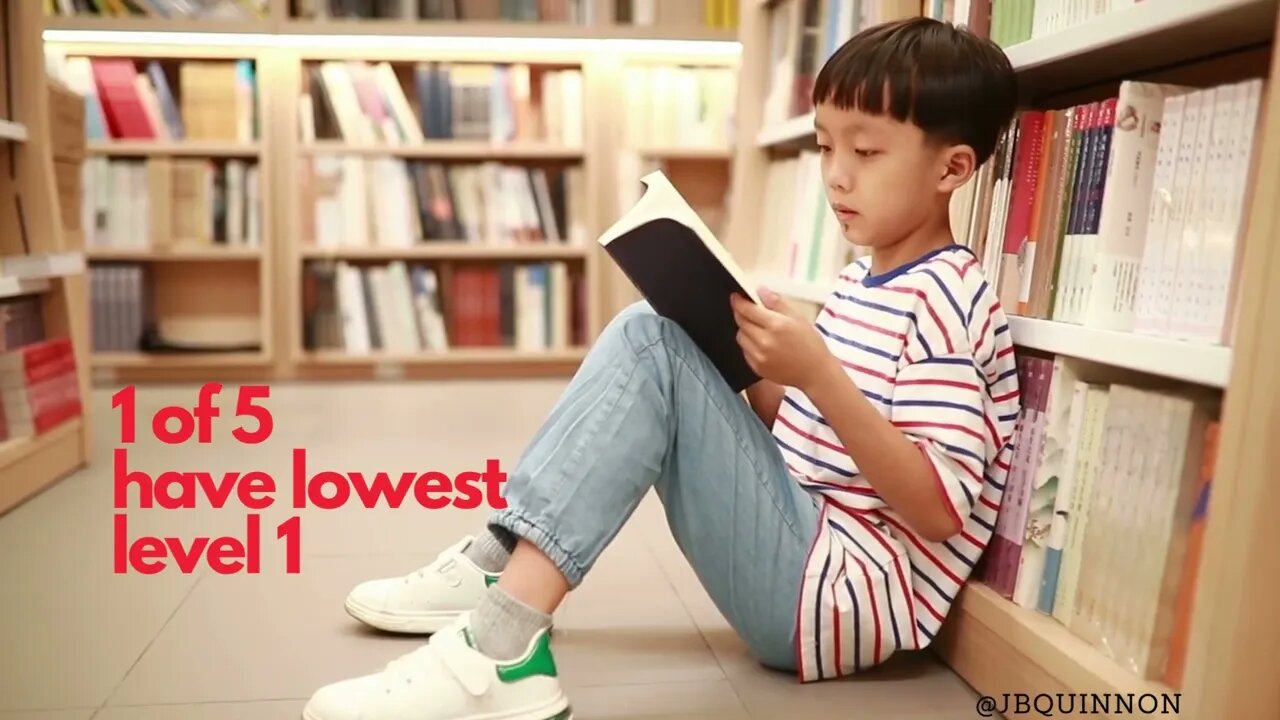Premium Only Content

"Beyond Degrees: Tackling Low Literacy Rates in a Highly Educated Society"
Although there has been an increase in the percentage of adults in the U.S. with a bachelor's degree or higher over the past few decades, the fact that more than half of Americans between the ages of 16 and 74 (54%) read below the equivalent of a sixth-grade level is concerning. This suggests that higher education attainment does not necessarily equate to higher literacy skills.
It is important to investigate the factors that contribute to low literacy rates, even as educational attainment increases. While there may be some correlation between education level and literacy skills, it is not a direct relationship. For example, some individuals may have completed higher education but still struggle with reading and writing due to factors such as learning disabilities, lack of access to quality education, or limited exposure to literacy-rich environments.
Addressing the issue of low literacy rates requires a multifaceted approach that includes early intervention and support, improving access to literacy programs, and addressing social and economic barriers that contribute to low literacy levels. Additionally, more attention needs to be given to adult literacy programs, which have historically been underfunded and underrepresented in academic and scientific research.
In conclusion, while increasing educational attainment is a positive trend, it is not sufficient to address the issue of low literacy rates. Further investigation and action are needed to ensure that all individuals have the literacy skills they need to succeed in life.
-
 28:30
28:30
CharLee Simons Presents Do Not Talk
5 days agoSam Anthony from YourNews.com (with host CharLee Simons)
17.1K1 -
 52:34
52:34
PMG
15 hours ago $1.13 earnedHannah Faulkner and Steve Friend | EXPOSE THE FBI CORRUPTION - KASH PATEL
11.9K6 -
 25:33
25:33
marcushouse
1 day ago $36.78 earnedStarship Exploded! What Went Wrong? Flight Test 7 Explained
175K60 -
 1:00:50
1:00:50
Squaring The Circle, A Randall Carlson Podcast
1 day ago#035 Cosmic Catastrophe In The Age Of Leo - Squaring The Circle: A Randall Carlson Podcast
110K30 -
 1:33:14
1:33:14
Jamie Kennedy
1 day agoThe LA Fires...
89.6K20 -
 2:01:45
2:01:45
Quite Frankly
2 days ago"Inauguration Eve: Trump Time Travel Review" 1/17/25
68.1K64 -
 58:42
58:42
SGT Report
4 months agoYour REAL NEWS vs. CIA Mockingbird LIES -- Sam Anthony
195K97 -
 2:59
2:59
LimitlessAmbition
1 day ago $14.88 earnedPROVE THEM WRONG With This POWERFUL Motivation!
156K6 -
 8:31:37
8:31:37
G2G Gaming Channel
20 hours agoGive me my Helmet, Im going in!! #RumbleGaming
138K3 -
 4:45:11
4:45:11
MoFio23!
19 hours agoNintendo Switch It UP Saturdays with The Fellas: LIVE - Episode #3
89.7K7